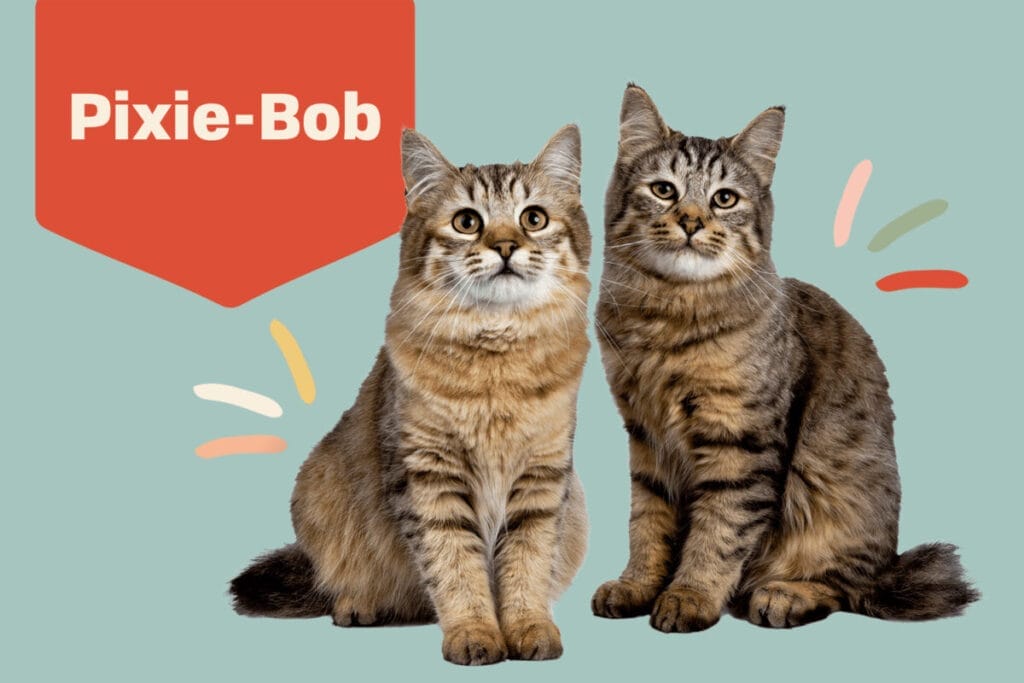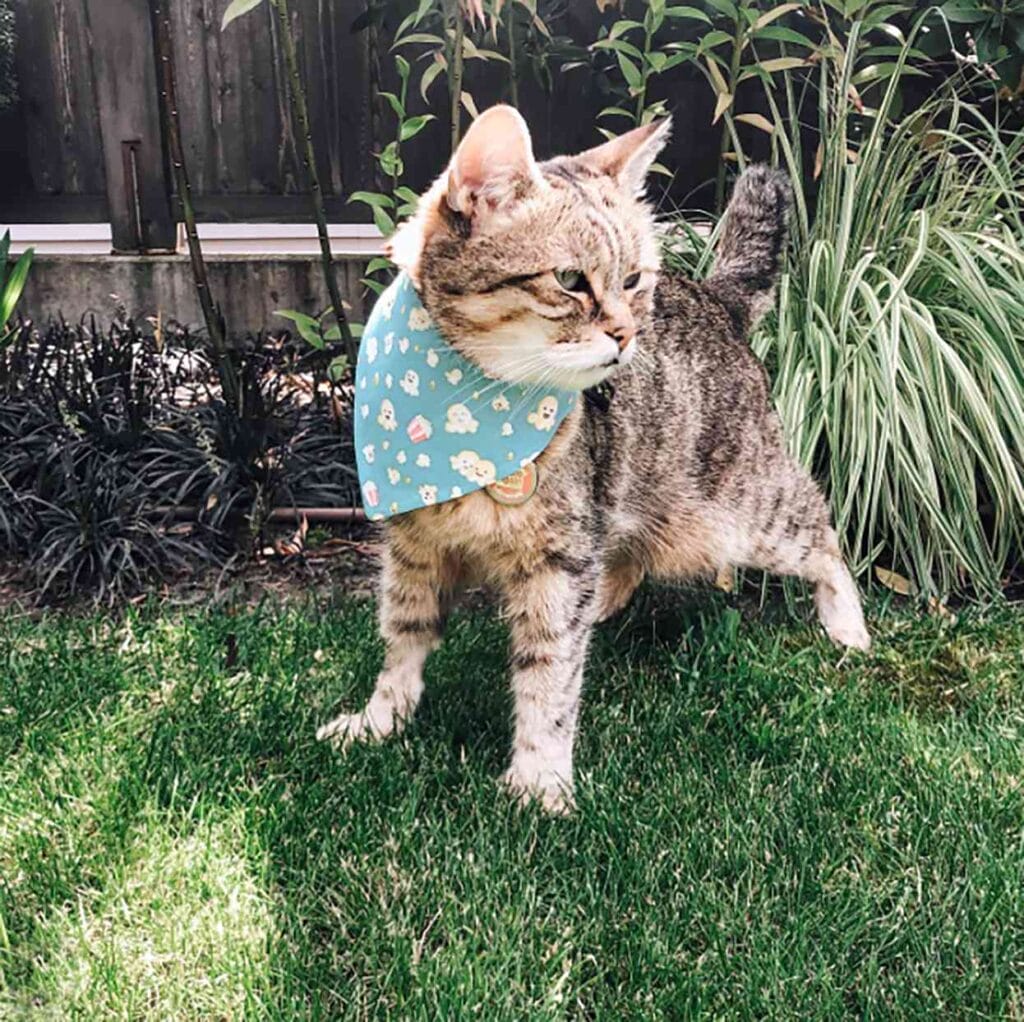The Pixie-Bob is a breed shrouded in mystery, rumored to be born from natural North American wildcat hybrids. These affectionate, social cats make wonderful companions for active households.
Introduction The Pixie-Bob Cat Breed
First documented in 1985 by breed founder Carol Ann Brewer, the Pixie-Bob’s origins are the stuff of legends. Some claim they originated from naturally occurring matings between domestic cats and wild North American bobcats while others believe they descend solely from domestic cats carrying a bobbed tail gene. Wherever the truth lies, today make loving yet lively companions. They resemble small wild cats with their muscular build, spotted coats, and bobbed tails but have overwhelmingly domestic temperaments given proper socialization.

Affectionate with Family: ⭐⭐⭐⭐
Amount of Shedding: ⭐⭐
General Health: ⭐⭐⭐
Potential for Playfulness: ⭐⭐⭐⭐
Tendency to Vocalize: ⭐⭐⭐
Kid-Friendly: ⭐⭐⭐
Friendly Toward Strangers: ⭐⭐
Easy to Groom: ⭐⭐
Intelligence: ⭐⭐⭐
Pet Friendly: ⭐⭐⭐
- Medium-large, muscular build resembling small wild cats
- Dense spotted tabby coat in brown, grey or reddish hues
- Naturally bobbed tail 2-4 inches
- Active, entertaining and loyal personality
- Lifespan 15 years+
Pixie-Bobs originated from mysterious naturally occurring spotted bobtail cats of North America, either wholly domestic or possible wildcat hybrids.
Caring for a Pixie-Bob cat breed
Diet:
- High protein meat-rich formulas
- Digestive care recipes
- Occasional raw diets
Habitat:
- Cat trees, tunnels, scratch posts
- Puzzle feeders and interactive toys
- Catios for outdoor access
Grooming:
- Weekly brushing
- Nail trimming monthly
- Checking ears/teeth routinely
- Enrichment: Engage their energetic nature via daily active playtime, environmental novelty and positive interactions.

Finding a Pixie Bob
- Most Popular Regions: Northwestern U.S., Canada
- Price Range: $600 – $1200 USD
Adoption/Rescue:
- TICA registered Pixie-Bob breeders
- Regional bobtail/pixie cat rescues
Pre-Adoption Checks:
- Overall energetic temperament
- Current vaccinations
- Spay/neuter status
Preparing for a Pixie-Bob
- Tips: Cat-proof home, set up climbing routes, use food puzzles
- Care Tasks: Proper nutrition, enrichment, annual vet exams
- Essentials: Premium food, trees, toys that facilitate energetic play
- Health Issues: Heart conditions, hip/elbow dysplasia
- Key Vaccines: Feline leukemia, panleukopenia virus, rabies, FVRCP

Popular Pixie-Bob Cat Names
Names related to their wildcat looks or bobbed tails suit them.
Examples: Bobbie, Pixie, Lynx, Stumpy, Spots
“Do Pixie-Bobs like the outdoors?”
Access to an enriched outdoor enclosure is recommended, but they can live happily indoors given ample vertical space and daily activity.
“Are Pixie-Bobs intelligent?”
Yes, Pixie-Bobs tend to be very clever and respond well to training when inspired.
“How many Pixie-Bob types?”
Just one accepted breed with minor variations in coat pattern/coloring and bob tail length.
“How to curb Pixie-Bob biting/scratching?”
Redirect to appropriate scratch posts. Use synthetic pheromones to ease overstimulated play.
“Tips for friendly Pixie-Bob socialization?
Gradually positively introduce new sights, sounds, people and animals during key 7-16 week period.
“How to train a Pixie-Bob cat?”
Motivate with praise, play and treats to teach cues like sit, stay, spin, fetch toys.
“Recommended Pixie-Bob vet visits?”
Annual exams to monitor joint health plus prompt visits for any emerging conditions.
“Good family pets?”
Yes! When properly exercised/enriched these affectionate cats form very close bonds with their families.
“Good with kids/other pets?”
Yes, their energetic playful nature allows safe interactions with gentle kids and cat-friendly pets.
“Can they cause allergies?”
While not hypoallergenic, their short coat traps less dander than long-haired breeds.
“Are they aggressive?”
No. With proper handling/socialization, become very sweet, loyal companions.
“Do they have hair loss issues?”
No. Their short dense spotted coats remain full with weekly brushing and nourishing diet.
Are you a cat lover who wants to learn more about your furry friends? Do you want to find the best cat food, cat care tips, and resources for your cats? If so, you’ve come to the right place! Welcome to Cat Food Site, the ultimate website for cat enthusiast.
Here you will find everything you need to know about cats Breed, from their health and behavior to their breeds, cat diet and names. You will also discover the latest cat news, cat nutrition, trends, and memes from around the web.

